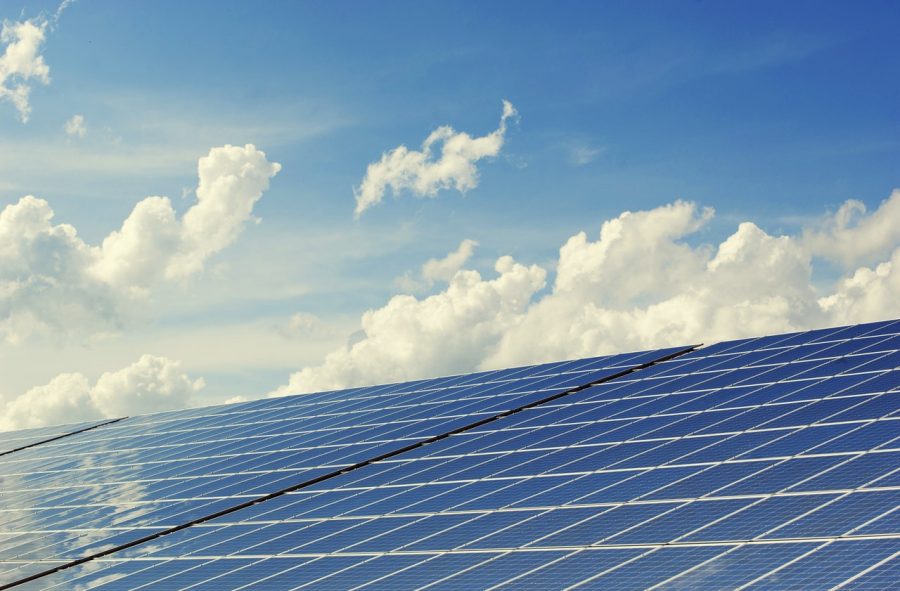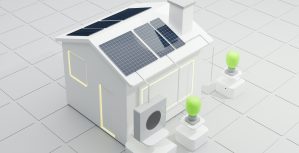Energy Efficient Upgrades You Can Make To Your Home
With energy prices set to go through the roof homeowners across the Land are looking for ways they can make their home more fuel efficient and keep costs as low as possible. One way to do this by doing some upgrades to your home. Yes but that will cost us money you may say, however with no signs of the rising cost of energy slowing down you are likely to recoup the cost of any improvement very quickly. Another thing to take into account is that to encourage people to reduce their environmental footprint organisations such as local councils and the government are in some cases offering grant funding for eco-friendly initiatives. So we thought we would have a look at some of the different upgrades you can make to your home to make it more energy efficient, reducing your environmental footprint and saving you money at the same time.
Upgrade your Insulation
Insulation helps keep your home warm in the winter and cool in the summer, and can also help reduce sound levels in your home. As a bonus, insulation keeps your home cool during the summer and warm during the winter, which allows you to save money on your utility bills. If your home is not already insulated, you may want to consider adding insulation to your roof space, walls, or basement.
When adding insulation, be sure to use the right type of insulation for your climate and the part of your home you are insulating. Also, make sure that the insulation is installed properly to get the most benefit from it. You can fit insulation to your home yourself if you have the appropriate skills, alternatively there are professional outfits who will be only too happy to help. It is possible you may be entitled to grant funding to assist with the cost.
Install an Air Source Heat Pump
Installing an Air source heat pump in Scotland or anywhere else is a great way to improve the energy efficiency of your home. Not only do they help you save money on your utility bills, but they can also help you reduce your carbon footprint. If you’re thinking about installing an air source heat pump in your home, here are some things to consider:
· The size of the heat pump. Make sure to choose a heat pump that is the right size for your home. A too-small or too-large heat pump will not work as efficiently as one that is properly sized.
· -The type of heat pump. There are two types of air source heat pumps: inverter and non-inverter. Inverter heat pumps are more efficient than non-inverter pumps, so if you’re looking for the most energy efficient option, go with an inverter pump.
· The climate you live in. Air source heat pumps are not suitable for all climates. If you live in a climate where it gets very cold in the winter, you may need to install a different type of heating system in addition to your air source heat pump.
Change to a Smart Thermostat
A programmable thermostat can save you a lot of money on your energy bills. By programming the thermostat to adjust the temperature automatically, you can save money by not having to heat or cool your home when you’re not there. A smart thermostat can also learn your habits and adjust the temperature accordingly, so you can save even more energy and money.
Draught Proof Your Windows
Draught proofing your windows is a great way to make your home more energy efficient. By adding insulation to your windows, you can keep the heat in during the winter and the cool air in during the summer. In the greater scheme of things draught-proofing your windows is a relatively inexpensive process and something even someone with limited DIY skills can do themselves. With a bit of time and effort you can significantly reduce the cost of your energy.
Fit Solar Panels
While there is a not inconsiderable initial outlay for solar panels we still believe they are a worthwhile investment. Not only will solar panels help save money on your energy bills they can help you generate income. How you may ask? The government will pay you for all the electricity you generate through its feed in tariff. Solar panels have been proven to increase the value of a house, and they are very low maintenance requiring only an annual check. You do not need planning permission for solar panels however our advice is to consult the professionals before starting any work.
So, if you are looking to reduce both your bills and carbon footprint the things we have highlighted above are a great starting point.
Share It on :





